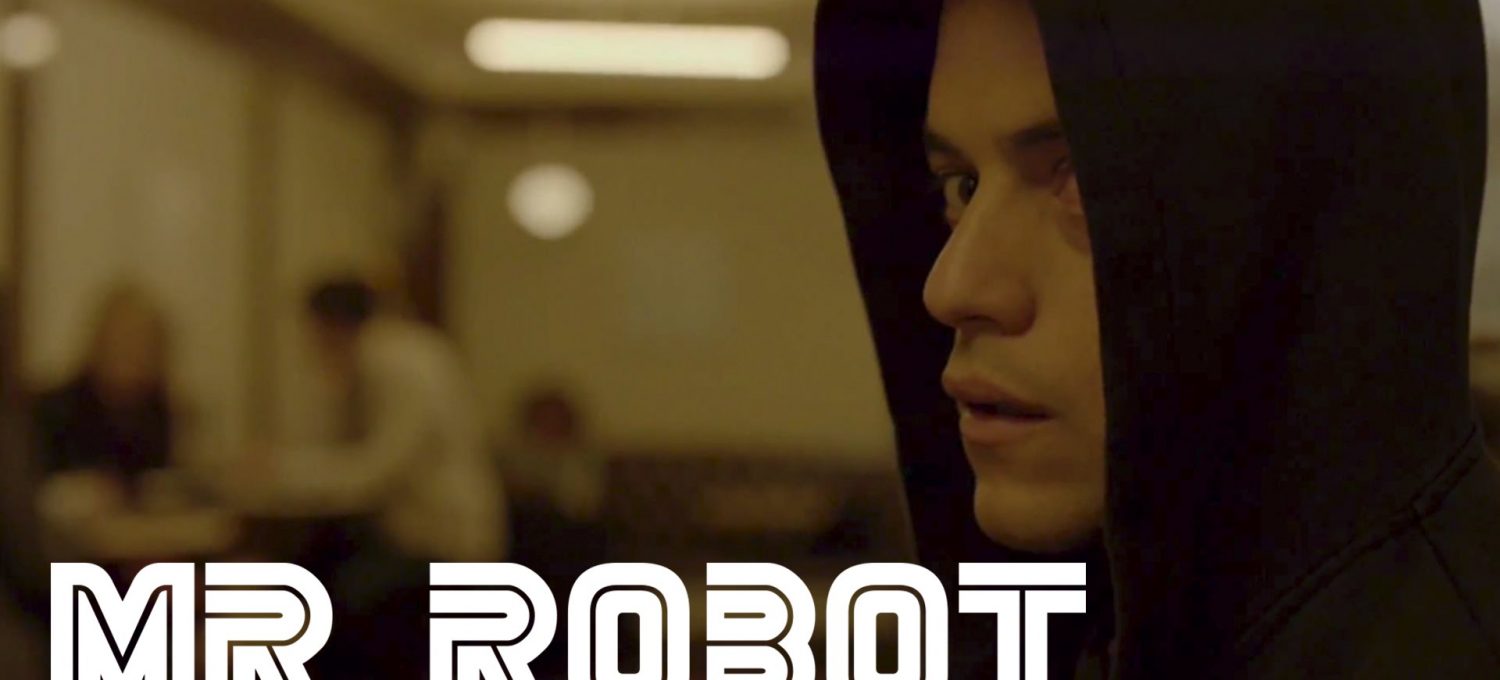Having wrapped up the third season of Orange is the New Black, Tony Jones and I have moved on to a new Killer Serial, Mr. Robot. Read on for our thoughts on the first four episodes.
In Mr. Robot, Elliot Alderson (Rami Malek) is a cyber-security specialist that suffers from crippling social anxiety disorder. He medicates with drugs and hacking into other peoples lives. His company, All Safe, provides security for one of the largest corporations in the world, Evil Corp, which also happens to be responsible for his father’s untimely death when Elliot was a child. A group of anarchist hackers called FSociety, lead by Mr. Robot (Christian Slater), recruit Elliot to help them take down Evil Corp.
JRP: Mr. Robot is a timely series, both in its overall aesthetic and subject matter. The USA Network can finally add themselves to the growing list of networks that have at least one great show in their lineup. It also reveals that networks are no longer using summer to burn off lesser quality series. Mr. Robot is one of the best shows on television at the moment, excelling in writing, direction, cinematography, and acting. While most series sacrifice one for the other, it moves at a slower pace, building up both character and plot with each episode. Like precious few series, Mr. Robot seems to demand repeated viewings, not just to revel in the visuals and performances, but to hunt for any potential easter eggs.
TJ: From a technical perspective, what I find intriguing is the washed-out, Matrix-like cinematography. New York hasn’t looked this bleak in a long time. And then, in a fascinating swing in Episode 4, Elliot briefly decides to go mainstream in his hallucination, and everything gets bright and colorful. He even purchases a Starbucks vanilla latte. That was genius.
You’re right about the timeliness of its subject matter. In a world of caped crusaders and super-powered superheroes, Elliot (and his fellow hackers) might be the heroes we really need. And whether or not we should be considering these characters as heroes is the central question. But let’s face it, Elliot is, essentially, a more screwed up version of Bruce Wayne.
JRP: I really appreciate how creator Sam Esmail has given us such a flawed hero/anti-hero, who suffers from a serious illness and not a supernatural accident. I also love the way in which he has situated Elliot in FSociety’s diverse group, which even includes a Muslim woman hacker, Trenton (Sunita Mani). In Mr. Robot, Esmail is also complicating the insider/outsider dichotomy that we often see in pop culture and the world around us. While these hackers are a mixture of traditional outsiders vis-a-vis mainstream culture, much of that culture is part of the 99% that don’t have access to the systems that control or run the world. They are the dispensable cubicle dwellers like Ollie (Ben Rappaport) or even business owners like Gideon (Michel Gill).
TJ: I find the series so far to be intriguing but also troubling. What’s troubling to me is the massive about of drug use, the BDSM with a pregnant woman and a cheating husband, and the obvious mental illness. The fourth episode felt a lot to me like Trainspotting, and while I don’t mind that in an experiential movie, I don’t know whether I can handle it over the course of a 13-week television season.
But I’m willing to give it a go! I hope readers will, too, since this is a different kind of dystopian, apocalyptic tale, set in the here-and-now, and not very hard to imagine happening.
New Episodes of Mr. Robot air on USA Wednesday nights at 10/9c. All episodes are currently streaming on usanetwork.com/mrrobot and Hulu.
